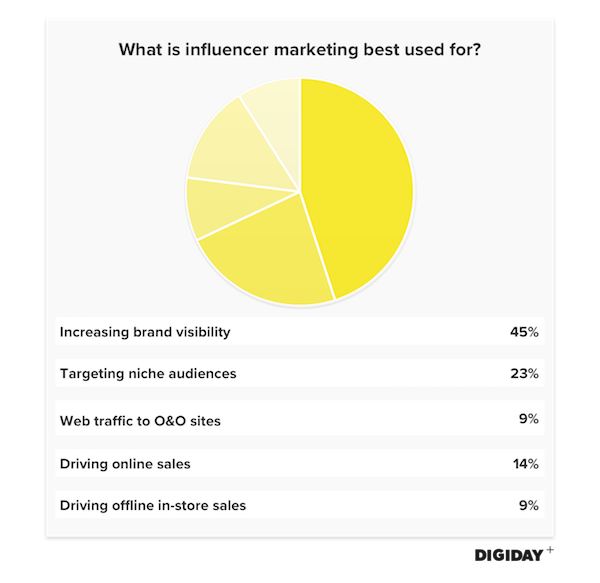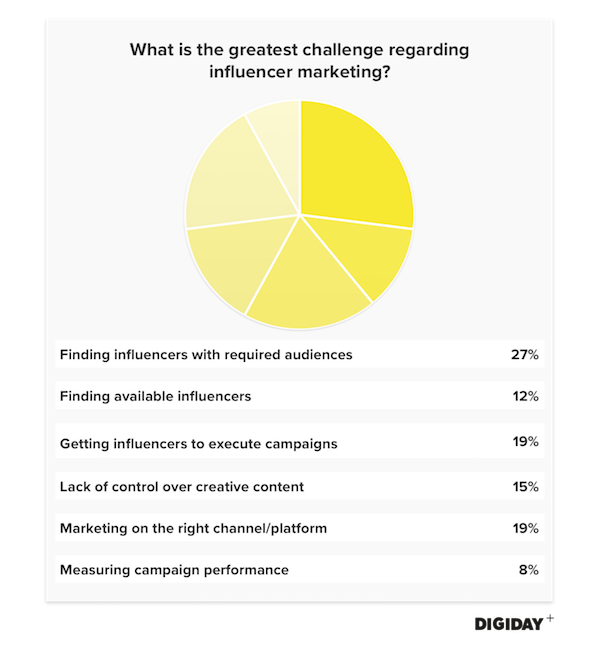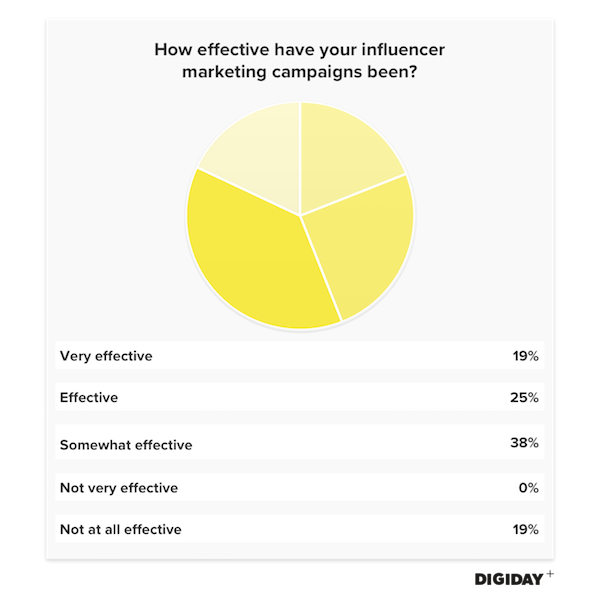Secure your place at the Digiday Media Buying Summit in Nashville, March 2-4
Digiday Research: How Japanese marketers use influencer marketing
This research is based on unique data collected from our proprietary audience of publisher, agency, brand and tech insiders. It’s available to Digiday+ members. More from the series →
Digiday’s “Research in brief” is our newest research installment designed to give you quick, easy and digestible facts to make better decisions and win arguments around the office. They are based on Digiday’s proprietary surveys of industry leaders, executives and doers. See our earlier research on the state of the agency world here.
At last month’s Hot Topic: Data-Driven & Content Marketing event in Tokyo, we sat down with 22 executives from brands, agencies, and publishers to get their insight on the influencer and platform marketing issues facing marketers.
Driving sales isn’t the point of influencer marketing campaigns in Japan
Marketing in Japan poses a daunting challenge for foreign and domestic companies alike. To bridge the gap to Japanese consumers, brands such as Dyson are increasingly relying on influencers to connect them with their target audiences.
Forty-three percent of respondents thought increasing brand awareness among consumers was the optimal use for influencer marketing. Half as many respondents, 23 percent, thought that influencer marketing was better at galvanizing purchases either in stores or online than building brand awareness.
Challenges of influencer marketing vary
Respondents were divided on what they found to be the biggest challenge of influencer marketing. Finding influencers with the desired target audience was the biggest gripe, but just over a quarter of respondents chose that option. Having influencers utilize the right platform and execute campaigns as planned were also common concerns.
Influencers’ failure to follow through on their campaigns is a noted industrywide issue. To address such complaints, Japanese tech companies are taking matters into their own hands. BitStar recently collected $2.7 million in funding to help brands connect with YouTube stars and manage campaigns. Meanwhile, Couture offers a platform that charges brands on a per-engagement basis to avoid headaches when influencers drop the ball.
Influencer marketing is viewed as effective
Global spend on influencer marketing is accelerating. Marketing across Instagram already totals over $1 billion annually. However, digital accounts for only 15 percent of the $60 billion spent on advertising per year in Japan.
More than twice as many respondents thought their influencer campaigns were effective or very effective than those who thought they were not very or not at all effective. If influencer marketing continues to be considered effective, the proportion of ad dollars spent on digital in Japan could increase.
More in Media

Digiday+ Research: Dow Jones, Business Insider and other publishers on AI-driven search
This report explores how publishers are navigating search as AI reshapes how people access information and how publishers monetize content.

In Graphic Detail: AI licensing deals, protection measures aren’t slowing web scraping
AI bots are increasingly mining publisher content, with new data showing publishers are losing the traffic battle even as demand grows.

In Graphic Detail: The scale of the challenge facing publishers, politicians eager to damage Google’s adland dominance
Last year was a blowout ad revenue year for Google, despite challenges from several quarters.





